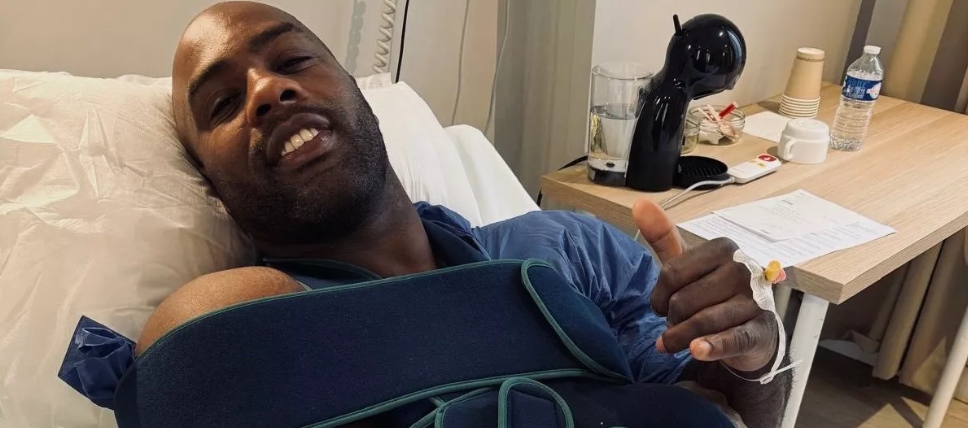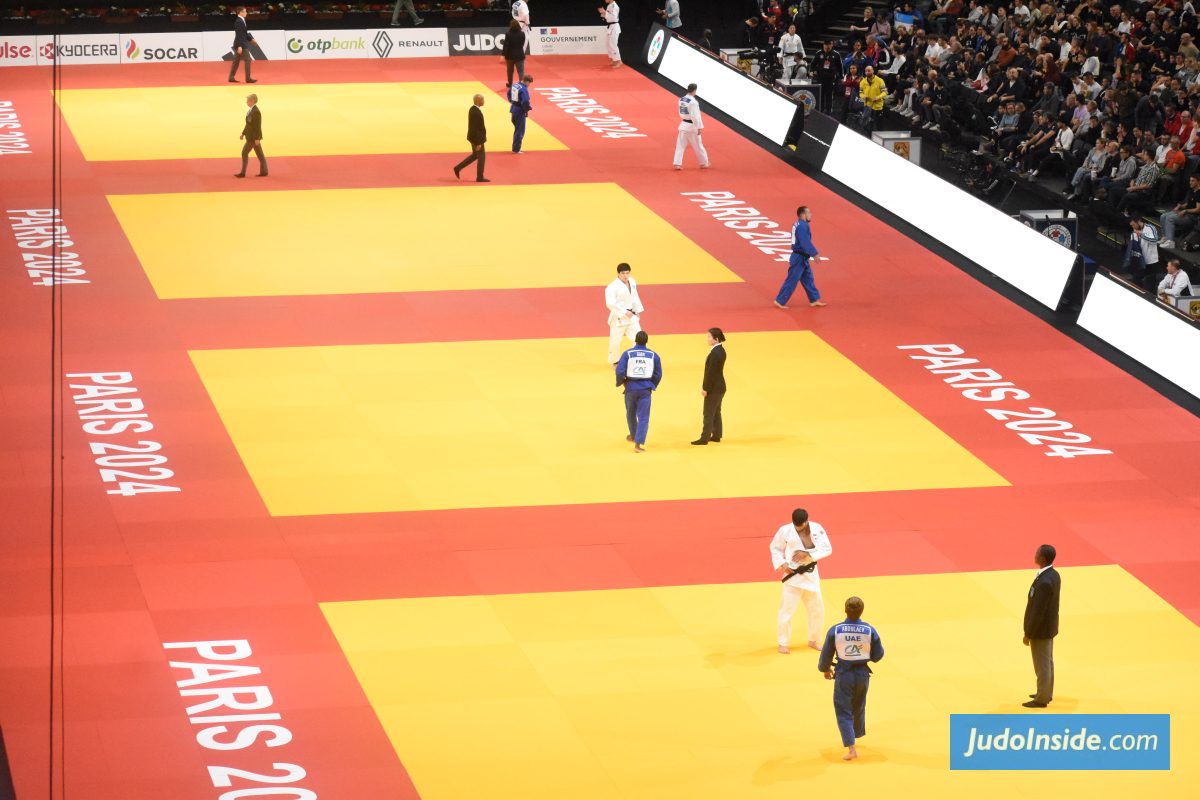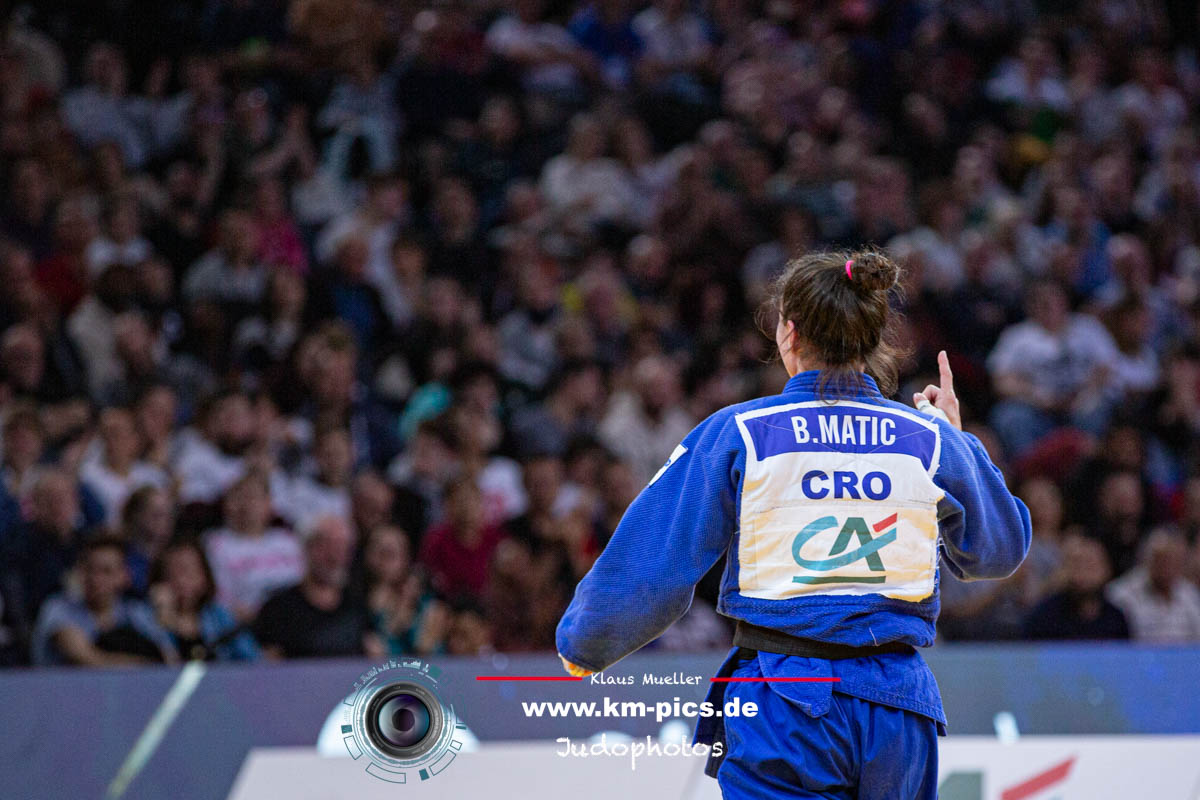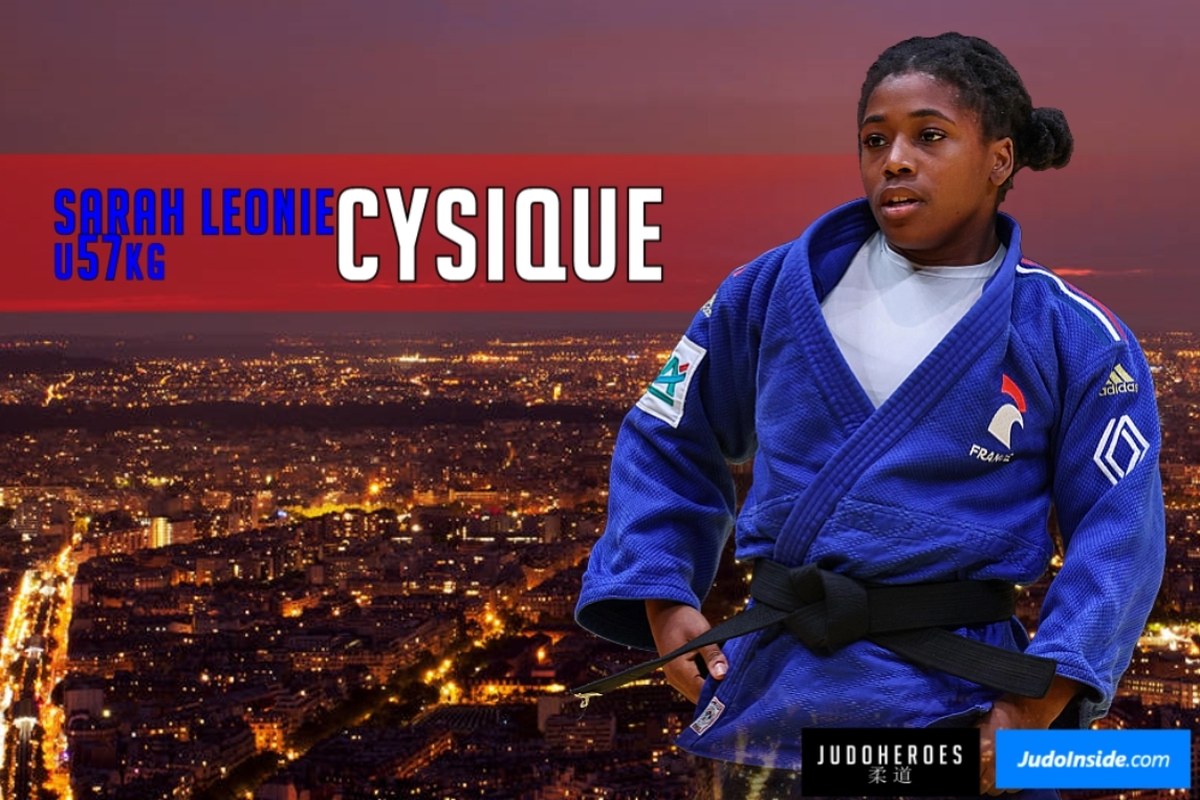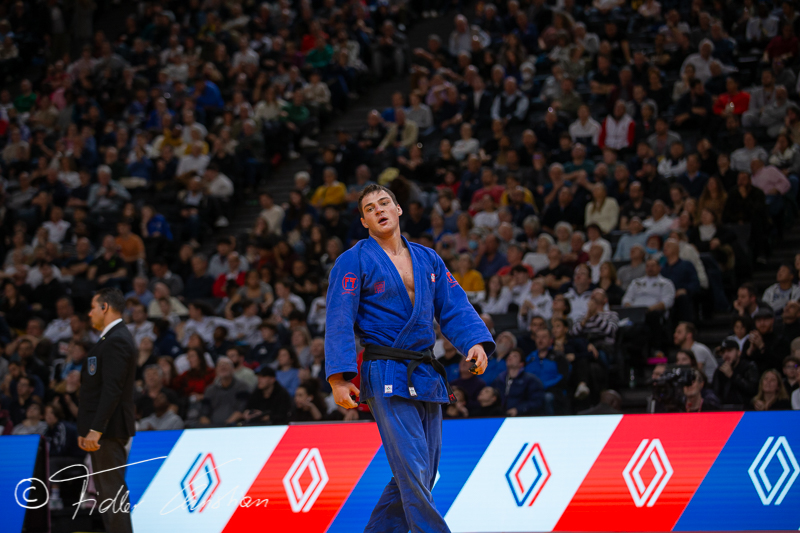Lukas Krpalek doubles in Tokyo in the heavyweight title
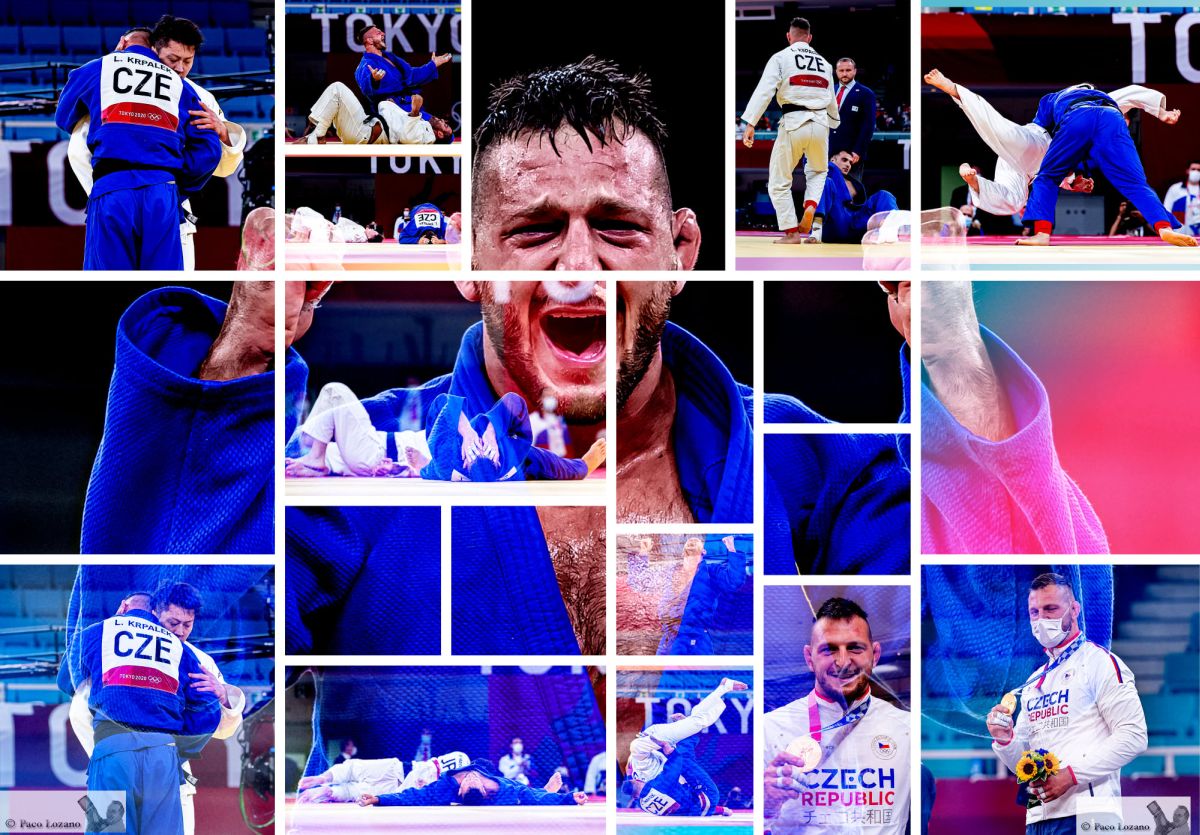
 30 Jul 2021 15:30
30 Jul 2021 15:30

 Paco Lozano / Judo y Otros
Paco Lozano / Judo y Otros
Five years ago Lukas Krpalek won the Olympic title in Rio in the -100kg weight division. Today he is again on top of the podium but in the heavyweight division. It's always difficult to win a medal, but to win two golds from two different categories is almost unbelievable, almost impossible. Today Lukas Krpalek made it possible.
In the final Tushishvili seemed to take the lead and Krpalek is penalised twice. One more shido and the victory would have gone to Georgia but this is when sport and judo are incredible. Within a couple of seconds Krpalek scored a waza-ari, which he immediately followed on the floor to pin down his opponent for ippon. Lukas Krpalek (CZE) became the third judoka to win Olympic gold in two different events, after Wim Ruska (NED) and Waldemar Legien (POL). Krpalek won the men -100kg in 2016. Georgia has now won 12 Olympic medals in judo, all in men's events.
Lukas Krpalek said, "The most difficult part of today was to defeat Harasawa. He knows me well and as everyone has seen the Japanese squad have prepared for the Games very well. I felt so relieved to get into the final. Tushishvili defeated me twice before so I had a plan and it was hard as well but in the end I won. I will try to push to be in París but right now I just want to rest."
“When I won gold at Rio, it was a special moment for me and something precious. In Rio, I said that I am going to do the 100-plus category to get a new motivation and try to achieve what I achieved in the under-100 category: to win the world championships, European championships and Olympic Games. Those are very difficult steps to take. I didn’t really believe I could do it. It was a huge dream for me. I didn’t believe till the last moment, but I managed it, and I achieved it."
“It’s precious to stand on the podium with Teddy. He is a great personality. I am admiring him my whole career. When I was competing in the under-100kg category, I watched all his competition, and I was crossing my fingers for him.
"Every fight with him is a great honour for me, even if I lose, because I will always learn from him. To stand on the tatami with him is precious."
Bronze Medal Contests
The first bronze medal was won, in the end, by Teddy Riner. This is not the colour he came for, but winning a fourth medal from a fourth Olympic Games is really impressive. Through the match Harasawa seemed totally incapable of stopping Riner from going forward and he was penalised three times. From now on, if Teddy Riner wants to beat Nomura's record, he will have to be present in Paris in three years.
The second bronze medal between Yakiv Khammo (UKR) and Tamerlan Bashaev (ROC), concluding a beautiful day for the world number one, despite his defeat in the semi-final.
Teddy Riner said, "It is the medal of courage. I came back from very far away and it wasn’t easy. My coach motivated me after the quarter-final. He said have fun and get the bronze. Ok it is not the gold but still an Olympic medal. In the end I’m a bit frustrated but still happy. These 5 years were so hard so I’m not going to complain."
Tamerlan Bashaev said, "Before facing Teddy I thought ‘he is just a man made of bones and flesh.’ The plan was to go to golden score and wait for him to get tired. Then his kumi -kata would be less strong and I could find an opportunity. It is exactly what happened. Then I lost, which was frustrating but I said to myself that I will get, by all means, the bronze medal."
Great semi-finals
Let’s say immediately that the semi-finals were not what the public expected. At the very least, they lacked a big name, that of Teddy Riner (FRA), who had announced that he was in Tokyo for one thing, to conquer his third Olympic title and therefore to reach and overtake, by the inclusion of his extensive back catalogue of world titles, the great Nomura, who will finally be able to rest easy, at least for a few more years, with his record untouched.
Having outmanoeuvred Riner, it was therefore Tamerlan Bashaev (ROC) who faced the 2018 world champion Guram Tushishvili (GEO), for a place in the final in the first half of the draw. Bashaev started the semi-final letting Tushishvili totally control him. From the audience we could hear 'shido white' for the ROC athlete but suddenly, with one of the attacks of the Georgian, Bashaev counterattacked to take the lead. With one minute left, Tushishvili started to really push and score a first waza-ari with a koshi-waza, before concluding in style with a powerful counterattack. This is what we call judo and a place in the final for Tushishvili.
At the bottom of the draw, Harasawa Hisayoshi (JPN) had a hard time getting rid of Yakiv Khammo (UKR) to face the Rio Olympic champion at U100kg, Lukas Krpalek (CZE). For both men the stakes were high, since the absence of Riner opened up new possibilities: for Harasawa and Japan to win the heavyweight title that has eluded them for so many years and for the Czech the possibility to create a new fairytale by winning in two different categories. Eventually it was Krpalek who fell on the mat from exhaustion and happiness after a four minute long golden score period, that he won against Harasawa, who then competed for the bronze medal.
Riner for bronze
However, things had started well for the French giant, who had in turn eliminated the Austrian Stephan Hegyi and then the Israeli Or Sasson, who had appeared in great shape, even if the experts may have seen some small hesitations and imbalances emerging in his movements, which would be detrimental later on.
In the next round Riner was opposed to the ROC representative Tamerlan Bashaev. The Frenchman quickly took the measure of his opponent, much smaller than him and imposed his strong guard, pushing Bashaev to be penalised twice, while he himself was penalised only once. Everything therefore seemed well under way for Riner to go to the semi-final again but his coach shouted at him from the edge of the tatami, to dictate the pace for the third penalty to fall quickly, which the Frenchman did not seem to be fully aware of.
As the golden score period began there was a shoulder attack from Bashaev, followed by an immediate change of direction and Riner found himself propelled onto his back, for a waza-ari that immediately ended his third title dream, at least here in Tokyo. The time to analyse this defeat will come, but for now what interests us are the semi-finals, knowing that after two Olympic Games of Riner's total domination, we would have a new Olympic champion tonight.
Teddy Riner claimed his fourth Olympic medal after gold in this event in 2012 and 2016, and bronze in 2008. He is the second male judoka to claim at least four medals at the Olympic Games, after Angelo Parisi (4, FRA/GBR). France has won seven Olympic judo medals at these Olympic Games, equalling the French record for most at a single Games: seven in 1992 and 2012.
Riner: “I am over the moon. It’s been a day that went well. I would have liked to end it differently, but I’m very proud of having managed to go all the way to win this bronze medal. I know, and I think everybody knows, that the Olympic Games is very difficult for everybody. Maybe every athlete tries for one medal in a career. Me, I have four medals, and I am very happy to come back with a fourth medal for my family, for my staff, for my team.
Repechages
The first repecharge contest was a rematch of several big event finals or semi-finals between Teddy Riner and Rafael Silva. Riner left no chance for SILVA, applying a sumi-gaeshi technique after only a short while, scoring waza-ari, which he followed with a juji-gatame for ippon. Those two men know each other and they respect one another. It was over for Silva but for Riner there was a bronze.
The second repechage contest between Yakiv Khammo (UKR) and Bekmurod Oltiboev (UZB) was more original. The victory went to Yakiv Khammo with an impressive eri-seoi-nage that propelled Oltiboev to the ceiling of the Nippon Budokan. It was perfectly executed, just lacking a clean landing on the back. The move was then awarded waza-ari, which Khammo kept until the end, to pay his entry to the bronze medal contest.
 like
like
 share
share




